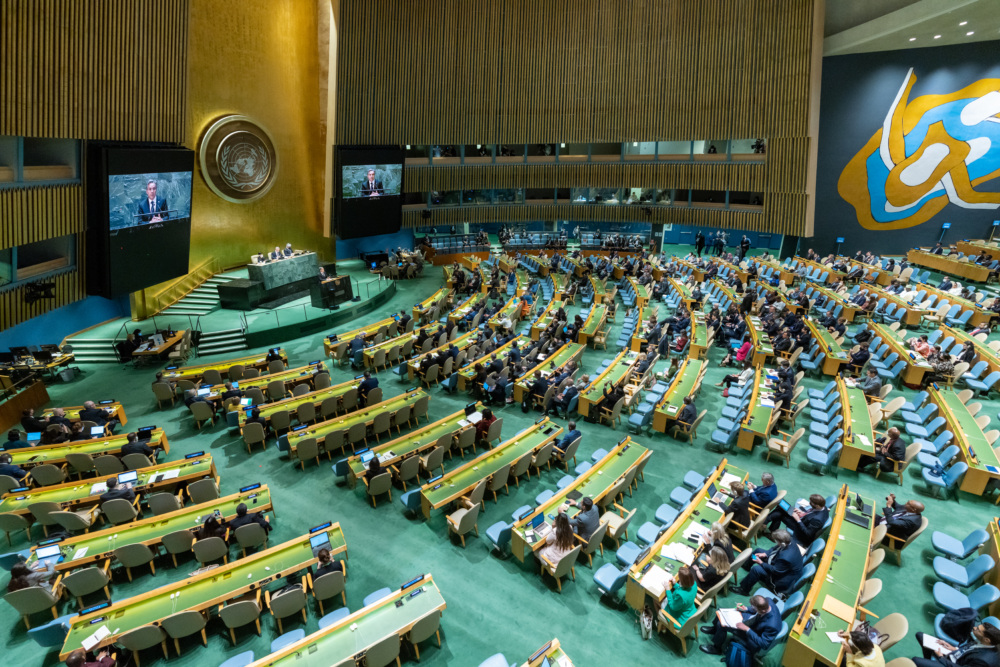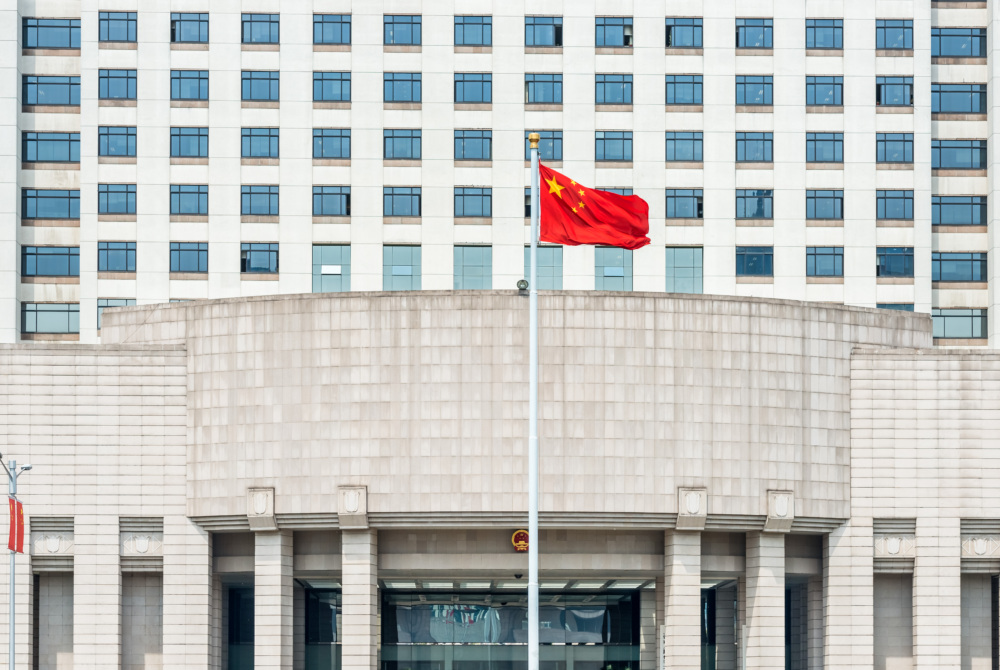
Atomic Pulse
Are States Boycotting the Nuclear Weapon Ban Negotiations Violating Their NPT Commitments?

The United Nations General Assembly began
negotiations March 27-31 on a treaty to prohibit nuclear weapons. A
second session is scheduled for June 15‑July 7, 2017. Following that,
the General Assembly will review progress and decide on a path forward.
Nearly a half-century ago, the Treaty
on the Non-Proliferation of Nuclear Weapons (NPT), today the cornerstone of
the global non-proliferation regime, was opened for signature. It entered into
force in 1970 and the central covenant was this: states without nuclear weapons
will not seek to acquire them and states with nuclear weapons will pursue
disarmament.
More specifically, under Article VI of the
NPT, each party undertakes to pursue
negotiations in good faith on effective measures relating to cessation of the
nuclear arms race at an early date and to nuclear disarmament. Later, in a
1996 Advisory Opinion on the legality of nuclear weapons, the International
Court of Justice interpreted Article VI as not only an obligation to pursue
negotiations, but an obligation to
achieve a precise result – nuclear disarmament in all its aspects.[1] The commitment in the NPT is to achieve
elimination of nuclear weapons, which effectively means that all parties will
eventually become non-nuclear-weapon states. Thus all NPT parties have accepted
the commitment to work for a nuclear weapon ban, the only issue is how to
achieve this – or how to get from here
to there.
A discussion to this end was underway at
the United Nations last week – but key players were absent. The five
nuclear-weapon states recognised by the NPT, some 30 non-nuclear-weapon states
supporting them, and the four non-NPT nuclear-armed states are boycotting the
negotiations. In the case of the nuclear-weapon states and their supporters who
are party to the NPT, the question arises: Is their boycott of these
negotiations a violation of their NPT commitments?
Since the concept of a nuclear weapon ban
is implicit in the NPT, I believe it is a failure of the good faith called for
in Article VI to dismiss negotiations towards a ban as “unrealistic” before
they even started. As I argued in a recent
paper, the purpose of negotiations is to try to arrive at an outcome
acceptable to the parties. If the nuclear-weapon states and their supporters
don’t like a particular ban model, for example the Chemical
Weapons Convention, they should put forward alternative proposals. Good
faith requires that an effort is made to find points of agreement. If the
outcome is a text the nuclear-weapon states consider unacceptable they can decline
to sign it. But to reject the very idea of a ban treaty at the outset, and to
refuse to participate in negotiations, predetermines that the outcome will not
represent their views and can be dismissed as “unrealistic.” This is not
acting in good faith.
[1]. 1996 ICJ Advisory Opinion, para. 99.
For similar reasons, the recent announcement
that the United States is undertaking a review to consider whether
or not, among many other things, the goal of a world without nuclear weapons is
in fact a realistic objective calls
into question the very basis of the NPT. The question should not be whether
this is a realistic objective, but rather what is needed to achieve it,
including steps that can be taken towards this goal in the near term (it is not
credible that no such steps are possible).
It is not too late for those boycotting the
negotiations to decide to participate in the next session, which begins June
15. NPT parties cannot meet their commitment to pursue negotiations by not
negotiating. If the nuclear-weapon states continue to boycott the ban
negotiations, it is incumbent on them to initiate a further negotiating process
on effective measures relating to
cessation of the nuclear arms race and to nuclear disarmament, and to extend
this process to the non-NPT states. At the same time, the non-nuclear-weapon
states supporting the boycott should reflect more carefully on the NPT’s
objectives and obligations, and do what they can to persuade the nuclear-weapon
states to join the negotiations, or to initiate a further process as outlined
above, or preferably both.
Based in Australia, John
Carlson advises NTI leadership on international nuclear security, safeguards
and verification, and management of the nuclear fuel cycle. He supports NTI’s
efforts in the Asia-Pacific region on nuclear security and arms reduction, and
is a member of the Asia Pacific Leadership Network. Carlson is a Nonresident
Fellow at the Lowy Institute, a member of the Advisory Council of the
International Luxembourg Forum, an Associate of the Project on Managing the
Atom, Belfer Center, Harvard University and a member of VERTIC’s International
Verification Consultants Network. Carlson was an official in the Australian
government for more than four decades.
Carlson’s views do not
necessarily reflect those of NTI or the NTI Board of Directors or the
institutions with which they are associated.
Stay Informed
Sign up for our newsletter to get the latest on nuclear and biological threats.
More on Atomic Pulse

The 2023 NPT PrepCom: An Opportunity to Capitalize on Common Ground
As officials prepare to meet in Vienna for the 2023 PrepCom, they should consider some of the key themes that have emerged from NTI’s Global Enterprise to Strengthen Non-Proliferation and Disarmament.

China’s Nuclear Expansion and Implications for U.S. and Global Security
Amid uncertainty around China’s expanding nuclear program and silence from Beijing about the intent behind the build-up, a new report offers details about China’s nuclear program that suggest significant implications for U.S. and global security.

Reflections on My First Visit to Hiroshima
"Visiting Hiroshima imparted to me a deep sense of responsibility as well as a renewed energy to work towards a world without nuclear weapons," writes Program Officer Ananya Agustin Malhotra.
